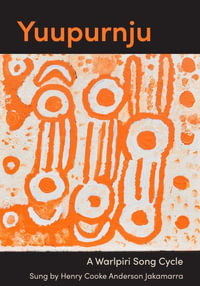In Spirit Song: Afro-Brazilian Religious Music and Boundaries, ethnomusicologist Marc Gidal explains how and why a multi-faith community in southern Brazil uses music to combine and segregate three Afro-Brazilian religions: Umbanda, Quimbanda, and Batuque. Spirit Song will be the first book in any language about the music of Umbanda and its close relative Quimbanda-twentieth-century fusions of European Spiritism, Afro-Brazilian religion, and Folk Catholicism-as well as the first publication in English about the music of the African-derived Batuque religion and "Afro-gaucho" identity, a local term that celebrates the contributions of African descendants to the cowboy culture of southernmost Brazil.
Combining ethnomusicology and symbolic boundary studies, Gidal advances a theory of musical boundary-work: the use of music to reinforce, bridge, or blur boundaries, whether for personal, social, spiritual, or political purposes. The Afro-gaucho religious community uses music and rituals to varisuly promote innovation and egalitarianism in Umbanda and Quimbanda, whereas it reinforces musical preservation and hierarchies in Batuque. Religious and musical leaders carefully restrict the cosmologies, ceremonial sequences, and sung prayers of one religion from affecting the others so as to safeguard Batuque's African heritage. Members of disenfranchised populations have also used the religions as vehicles for empowerment, whether based on race-ethnicity, gender, or religious belief; and innovations in ritual music reflect this activism. Gidal explains these points by describing and interpreting spirit-mediumship rituals and their musical accompaniment, drawing on the perspectives of participants, with video and audio examples available on the book's companion website.
The first book in English to explore music in Afro-Brazilian religions, Spirit Song is a landmark study that will be of interest to ethnomusicologists, anthropologists, and religious studies scholars.
Industry Reviews
"Gidal engages in important theoretical debates about ethnomusicology, race, ethnicity, and the role of music in enforcing boundaries: these debates should be of interest to any scholar attempting to work through the role of music in ritual in a different racial paradigm." --Kariann GoldSchmitt, Music and Letters
"The book's rich ethnographic description and extended, expert attention to music make it a unique and valuable contribution to the literature on Afro-Brazilian religions."--Reading Religion
"Marc Gidal as an ethnomusicologist provides a rich ethnographic study of Batuque, Umbanda, and Quimbanda from a region of Brazil most associated with gauchos and Europeans. The technical aspects of the musical boundary-work he describes should not prevent the student of Afro-Brazilian religions from thoroughly enjoying this book. Gidal has added to our understanding of how these Afro-Brazilian religious traditions clarify their distinct and overlapping
histories. This study should be of interest to students of Afro-Brazilian religion, history, ethnography, and anthropology." --Nova Religio
























